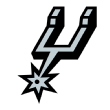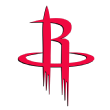Over the summer, each of the NBA’s 30 teams assembled a roster informed by some of the smartest experts in professional sports. The best basketball scouts in the world studied players to identify skills that could help their teams.
Analytic departments performed deep dives into hundreds of names to uncover undervalued players who can add wins on the margins. Salary cap gurus considered the long-term risks that accompany roster candidates. Medical specialists examined health histories to ensure that their teams wouldn’t waste valuable resources on talent that will never see the floor at 100 percent.
Yet for all the fancy new tools and innovative systems NBA organizations employ, they still don’t have a reliable way to measure what might be the most important element of all — chemistry.
Brewing chemistry is the dark art of professional sports. Some teams have started to use psychometrics and others mechanisms to determine whether a free agent or draft pick will mesh with the current roster, but even those most enthusiastic about the potential to quantify a player’s emotional makeup the way scouts evaluate the mechanics of his jumper will tell you that’s a long way off. Understanding the ingredients that go into building chemistry is still the great unknown.
The first month of the season has been a graduate-level chemistry test for many high-profile teams, and the early results have varied.
Teams such as the Milwaukee Bucks and Toronto Raptors have often looked seamless, blending new head coaches with new personnel in the locker room. The San Antonio Spurs‘ decades-old structure has enabled them to avoid many of the chemistry issues that might plague more fragile teams.
The atmosphere around the Minnesota Timberwolves, Houston Rockets and Washington Wizards has been anything but amiable. And for the star-studded Los Angeles Lakers, Philadelphia 76ers and Boston Celtics, the principals are still feeling each other out, both on and off the floor.
Oakland Athletics exec Billy Beane has long been one of the sports world’s more vocal skeptics of chemistry as a cause of winning. “I have always viewed culture and chemistry as a by-product of success,” he wrote in 2014. “If you put the performances on the field the culture will follow.”
Do Milwaukee and Toronto appear to have good chemistry because they’ve won a ton of games? And maybe the chemistry that’s missing in Houston and Washington can be found during a five-game winning streak?
Today we head into the NBA lab to check in on the league’s most intriguing chemistry experiments. — Kevin Arnovitz

SUCCESS STORIES

Chemistry question: Will Kawhi Leonard fit after such a public divorce from San Antonio?
New star, new coach — what could go wrong? Well, so far, so good in The Six.
Despite concerns about trading away DeMar DeRozan, the cornerstone of what easily has been the best stretch in franchise history, the Raptors have come out flying to start the season, and even after losing to the New Orleans Pelicans on Monday night have a 12-2 record.
What has made things work so well? Kawhi Leonard looking like an MVP candidate again certainly helps. So, too, does Kyle Lowry playing some of the best basketball of his career. But head coach Nick Nurse also deserves a ton of credit for the work he’s doing with this team.
By getting the roster to buy into fluctuating lineups and rotations based on who the opponent is, and how they play, the Raptors have become one of the most versatile teams in the league — and have taken advantage of their depth and athleticism across the roster. With veterans such as Serge Ibaka having renaissance seasons and youngsters such as Pascal Siakam coming into their own, the Raptors suddenly have one of the strongest rosters in the league and have emerged as the early favorite to reach their first NBA Finals. — Tim Bontemps

Chemistry question: Is Mike Budenholzer the answer to unlocking peak Giannis?
One mantra from the new Bucks head coach Mike Budenholzer has changed the team’s mindset this season: keep shooting. No matter how many shots a player misses, they are encouraged to take it again. Eventually, he says, they will fall. Budenholzer, who was hired in May, inherited many of the same key players that Jason Kidd had in Milwaukee. But under Budenholzer, Giannis Antetokounmpo has the eternal green light to shoot in addition to drive to the basket.
Key role players Ersan Ilyasova and Brook Lopez were added to the Bucks’ roster to space the floor. Along with Malcolm Brogdon and Khris Middleton, the paint is clear for Antetokounmpo to work his freakish magic without running into as much traffic.
The roster has proven to be deep, allowing the Bucks to win games against upper-echelon teams such as the Raptors (without Kawhi Leonard) even when Antetokounmpo was unable to play while he was in the league’s concussion protocol. Their depth along with Budenholzer’s pace-and-space system has catapulted them into an early Eastern Conference finals contender. — Malika Andrews

Chemistry question: Can DeRozan be sold on The Spurs Way?
Motivated by feeling unwanted in Toronto while recognizing the finite-ness of his career, DeRozan arrived in San Antonio wanting to combine his experience and knowledge of the game with the renowned tutelage of Spurs coach Gregg Popovich to maximize his remaining years. So far, that’s the way everything is trending for DeRozan and the Spurs, who have found the new addition to be a breath of fresh air.
So far, DeRozan has scored the fifth-most points (264) in the NBA over the past 25 years for any player with a new team over his first 10 outings. In that same span, he has set career highs in assists and rebounds, despite having played his first 685 career games elsewhere. In all, he has logged four double-doubles this season, which is impressive considering he posted 17 career double-doubles before joining the Spurs.
Billed as a midrange scorer when acquired, DeRozan has flashed a playmaking skillset the team didn’t expect. That has proven beneficial for the rest of the team, while keeping it more engaged offensively because of the likelihood a DeRozan dime will eventually come someone’s way. The Spurs may miss Leonard’s defense, but the playmaking element demonstrated by DeRozan didn’t exist with Leonard in the fold. — Michael C. Wright

WORKS IN PROGRESS

Chemistry question: How can Luke, Magic and LeBron possibly make this work?
LeBron James, Magic Johnson and Luke Walton need to accept a few hard-wired truths about the situation. The first, primarily for Magic, is that chemistry isn’t something that can be generated by the sheer force of personality. Just because each of these three guys is one of life’s winners doesn’t mean that they can collectively create winning in an instant. Walton was given an island of mismatched toys. And LeBron is at a point in his career when the rote basketball of fall is both low-stakes and uninteresting.
The second truth is that LeBron thrives in chaos, which is why you often find it in his immediate vicinity. Some people like humidity. Traditionally he has been able to elevate those around him amid this chaos. With a younger team, that’s harder. He’ll probably need to make a few accommodations along the way.
The Lakers look as if they might have stumbled on a smart strategy — address enough smaller problems, and the bigger ones might recede. Tyson Chandler is a good example. The Lakers needed more rim protection, and a bit of gravitas in the locker room, a certain kind of vet LeBron can trust.
Next specific problem: Walton needs to find consistent ways to help Brandon Ingram thrive. Solve that, and it will help you answer the larger system issues. The Lakers need to get out of the restore-Laker-glory business and get into the business of creating the conditions to win lots of basketball games. Do that, and the glory will follow. — Arnovitz

Chemistry question: How does Jimmy Butler mesh with another group of young stars?
The mix between Jimmy Butler and Minnesota’s Karl-Anthony Towns and Andrew Wiggins was like oil and water. So why will his relationship with Joel Embiid and Ben Simmons be any different? For starters, because Embiid and Simmons are a dramatically better tandem of players, and thus should have a far easier time earning Butler’s respect. The fact that Philadelphia has already proven it can make the playoffs, and win a playoff series, without Butler should help, too; he hasn’t gone farther in the playoffs than either Embiid or Simmons ever has. Butler wanting to be paid a full five-year max contract by the Sixers next summer won’t hurt, either.
Still, that doesn’t mean it will be easy. On the court, the fit between Simmons and Butler on the perimeter will be awkward. The combination of those two and Embiid will leave the Sixers gasping for every bit of spacing they can find — which is why Markelle Fultz is likely to be dropped from the starting rotation in favor of JJ Redick beginning Wednesday night in Orlando, where Butler will make his debut against the Magic. Then there’s the entire situation involving Fultz, on which we dove into detail following Monday’s win in Miami.
In short: Sixers head coach Brett Brown has his hands full making all of this come together properly. There are few jobs in the league more demanding than trying to find the correct path forward for these Sixers to have success — and to do so on the fly. — Bontemps

Chemistry question: How will Brad Stevens make all these pieces fit?
The Celtics entered the season expected to be the dominant team in the Eastern Conference. But it was always going to be a difficult proposition for head coach Brad Stevens to make all the pieces fit together — and Boston’s uneven start has certainly proven that to be true.
Partly this can be due to injury. Gordon Hayward still looks nowhere near the All-Star player he was before suffering a gruesome ankle and leg injuries in last year’s season opener, but the Celtics have to keep playing him significant minutes to try to round into form.
Kyrie Irving has had an uneven start after undergoing multiple knee surgeries this summer. Second-year forward Jayson Tatum and third-year guard Jaylen Brown have both regressed as they’ve tried to find their place in the new offensive ecosystem. Ditto for veteran center Al Horford, who is putting up the lowest numbers of his career across the board. Terry Rozier, meanwhile, has struggled to readjust back to his previous role as an understudy to Irving after breaking out as his temporary injury replacement during last season’s playoff run.
Much of this should wind up successfully sorting itself out in time. But, until it does, Boston is going to find itself struggling to keep up with the Raptors and Bucks atop the East. And, if it doesn’t happen soon, it may come too late for the Celtics to catch either of them. — Bontemps

‘THIS IS FINE’: Situations that need work

Chemistry question: How does this team move on from the Butler saga?
Jimmy Butler unleashed a bunch of memorable antics that eventually led to his trade from Minnesota to Philadelphia, but his practice tirade stands apart.
“You can’t win without me,” Butler yelled at his teammates, general manager Scott Layden and president/coach Tom Thibodeau during the practice.
This was heated bluster with an underlying truth: Karl-Anthony Towns and Andrew Wiggins have yet to prove they can be a reliable young nucleus for the Timberwolves. Towns isn’t known as an outspoken leader, and Wiggins’ intensity on the court comes and goes.
Without a singular leader, the Wolves will need to take a collective approach to leadership and hope that their new acquisitions can make an immediate impact. Robert Covington, an All-Defensive Team selection, should help shore up a defense that currently ranks 29th in the league. Dario Saric should also fit nicely as a complementary scorer who is comfortable playing on the perimeter and can create space for Towns. It is too early to tell whether or not Towns will rise to the occasion as a true franchise player, but the Timberwolves need their supermax center to blossom into a vocal leader and a double-double machine if they are going to make the playoffs for the second straight season. — Andrews

Chemistry question: After losing key role players, Melo wasn’t the answer — so what is?
Chemistry ranks far down the list of the Rockets’ problems this season. It wasn’t a factor in the decision to quickly move on from Carmelo Anthony, who was a consummate professional during his brief run with the Rockets and is liked and respected throughout the locker room.
Anthony, a former superstar in decline whose inconsistent scoring doesn’t make up for his defensive flaws, was just a bad basketball fit. The Rockets didn’t want to disrespect a 10-time All-Star by banishing him to the end of the bench while a rookie on a two-way deal (Gary Clark) takes his rotation spot.
Houston’s chemistry issues are based on a lack of experience together, not personalities. There have been times James Harden has looked frustrated that James Ennis, the bargain-bin replacement for Trevor Ariza, isn’t on the same wavelength. It hasn’t helped that Ennis and Harden have both missed time with hamstring injuries, but Houston has missed Ariza’s institutional knowledge. — Tim MacMahon

Chemistry question: Will John Wall & Co. ever figure this out?
Who knew losing Marcin Gortat would actually hurt the Wizards’ chemistry? The same Gortat who openly argued with and even subtweeted John Wall as their relationship deteriorated last season. Believe it or not.
For as much as Gortat and Wall grated on each other, they had the institutional knowledge of running thousands of pick-and-rolls together. Gortat setting a screen for Wall, and then Wall flying downhill to score or create for others was a bread-and-butter play for the Wizards over the past five seasons. When they didn’t have that old standby, players started to get frustrated and shot distribution started causing problems in the locker room. Within days, Wall and Bradley Beal were calling out their teammates for worrying about stats. With more than half the roster headed for free agency, it was a real issue.
Despite all that, the Wizards’ biggest problem has been their defense. Their frustration at the offensive end eroded their communication on defense, which is vital when a team switches as much as Washington wants to. When they’ve played small, their communication and offensive mistrust sometimes leads them to have all the downsides and few of the upsides that playing that way is supposed to deliver.
All that said, Beal and Wall have kept any issues between themselves in check and Wall has started to perform at a high level over the past few games. His assists are up and the offense is operating better. There are some signs of progress. — Brian Windhorst
